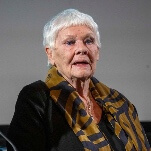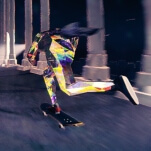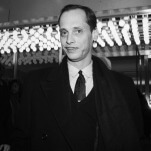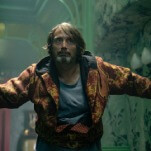The Truman Show was a delusion that came true


When The Truman Show was first released, 20 years ago today, it was viewed as a parable about television and celebrity. “If you think The Truman Show is an exaggeration,” Roger Ebert wrote in a four-star review, “reflect that Princess Diana lived under similar conditions from the day she became engaged to Charles.” In a review titled “The Audience Is Us,” Jonathan Rosenbaum picked at the logistics of the premise. Would anyone actually watch this program? Could we possibly be so dumb? What would the camera do when Truman takes a shit?
Shortly after the film’s release, reality TV exploded—Big Brother premiered in 1999, Survivor in 2000, American Idol in 2002—and we shifted to view The Truman Show as a prescient forecast of that cultural obsession. Around the film’s 10-year anniversary, we began to read of “the Truman Show delusion,” in which people became convinced that they were the stars of a reality show and that everyone around them was merely performing for some unseen camera. (Versions of the disorder had existed prior to the movie; it merely lent a popular reference point.) Treating the delusion was difficult, given that patients would think the doctors themselves were just part of the ruse. At its worst, the delusion has been linked to attempted suicides, murder, and an attempt to scale the Statue Of Liberty. One woman became convinced that she was a webcam. “These are not people who want to be famous,” the psychiatrist who coined the term told The Telegraph. “Quite the contrary, they want to be left alone.”
And now another decade has passed. What should we make of The Truman Show in 2018, the (sigh) era of the reality-TV president? In a lot of ways, it’s a charmingly anachronistic film—not just in its Norman Rockwell vision of suburbia, but in its very concerns and most outré sci-fi concepts. The story follows Jim Carrey as a man whose every second, from birth onward, has been broadcast to an adoring audience of billions. At the film’s outset, a piece of a lighting rig falls out of the sky, and Truman grows increasingly aware of the falseness of his reality. Peter Weir, working with graceful scale from a script by Gattaca’s Andrew Niccols, cuts between Truman, his adoring viewers, and the preposterous Christof (Ed Harris), a beret-wearing maestro lodged in a control booth on the moon. Christof orchestrates Truman’s entire reality—introducing a comely new co-worker as things begin to fizzle with his wife, for example—and also works to keep him trapped there. The show began as an infomercial to sell baby food, but as Truman grew, so did the soundstage, eventually housing a full, operating city. It’s surrounded by water that a staged childhood trauma renders uncrossable.
It’s a simulation of reality designed not by algorithm but by hand.
The premise, mind-blowing as it was in 1998, can be traced back to old Twilight Zone episodes, Paul Bartel’s 1968 short film “The Secret Cinema,” and Robert Heinlein’s 1941 story “They,” among others. The film fit into a wave of pre-millennial cinema that questioned the nature of reality, including Dark City, The Thirteenth Floor, EdTV, Pleasantville, Existenz, and The Matrix, the last of which is the only one that challenges it for cultural longevity. The Truman Show was among the first of these films, and it has a charmingly analog vision of how all this might work. There are no rifts in reality and surprisingly little computer-age technology, just a soundstage visible from space and clockwork orchestration of everything from traffic patterns to television programming. Cameras are hidden in snack machines and lapel pins in the event that Truman might happen by them. In one of the movie’s most whimsical scenes, a rainstorm breaks out directly above his head, following him with a slight lag along a beach. It’s a simulation of reality designed not by algorithm but by hand.
Weir and Niccols’ focus was on the audience, who are embodied alternately as a bar full of city dwellers, a pair of shiftless cops, a middle-aged guy in his bathtub, and a pair of elderly women clutching Truman embroideries. We see them react with joy and consternation as Truman begins breaking the rules of the simulation. Weir originally wanted to install cameras in movie theaters and, at some point, cut to the actual audience watching the movie, as well; he toyed with the idea of playing Christof himself. Truman may be fictional, in other words, but its setting was real. We would do this, the film insisted—we would watch a man merely live a life out on television, rather than living one ourselves. We would turn a nobody into a celebrity through sheer collective will. As reality television increasingly gobbled up people’s attention in the ensuing years, it was fair to think that the movie had been right. In 2003, The Joe Schmo Show one-upped the film’s premise, casting an everyman on a fake reality show, where a group of actors played not real people, as in The Truman Show, but stereotypical reality-show roles. At the end they revealed the ruse, giving Joe Schmo $100,000 and a lifetime of humiliation for his trouble. A then-unknown Kristen Wiig received a head injury in the process.
There’s always a thread of wish-fulfillment running through speculative fiction, even at its most critical, and the same is true of The Truman Show. Like reality TV, it assures us that we could be special—we might “got talent,” get “extremely made over,” keep up with a Kardashian. Viewing The Truman Show today, you have to force yourself to remember that reality TV was once a noteworthy phenomenon and not the air we breathe. Not only would we turn a nobody famous, as the film postulated, but we have succeeded in turning everybody famous, each of us the micro-celebrity of our own narratives, thanks to the internet. As with Truman, the cost of this constant drip-feed of personal gratification—likes, retweets, and so on—is privacy. YouTube has minted scads of genuine superstars who post daily missives with varying degrees of production intensity. A quick trip to the platform shows uncountable legions of would-be stars, broadcasting their everyday musings to thousands or hundreds or dozens. Every other major social platform (Facebook, Twitter, Instagram, and Snapchat) has likewise incentivized people to stream their lives, producing a bottomless well of user-generated reality programming.
Truman is right. Every conspiracy theory is true. Everyone is out to get him.
What happens when celebrity, at last, arrives? Truman, realizing he is the focal point of all this attention, loses it. Carrey is excellent at this, working his spastic face-muscles and acrobatic Adam’s apple toward surprisingly dramatic ends. In one of the film’s most resonant narrative threads, newspapers provide cover-up for breaks in the reality, like the falling light rig. Truman becomes a tinfoil-hat theorist himself, finding patterns in traffic, reading portentous omens into people’s blank stares. He never even picks up on the vast web of systems designed to keep him complacent—the friend who shows up with beer whenever he gets worked up; the docile, reassuring TV and music of his town; the gravitational pull of his mortgage; his wife’s desire for children. It is suffocating him, driving him mad. But despite all his wild-eyed, manic terror, Truman is right. Every conspiracy theory is true. Everyone is out to get him. There really are cameras everywhere.
If anything has changed between now and the movie’s 10-year anniversary, it’s that the internet has transformed into this place, where every conspiracy theory is true, where everyone is always watching, waiting for you. The Truman Show looks less like the increasingly scripted world of modern reality TV and more like the modern internet—full of endless antagonism, hyper-specific advertising, constant surveillance, seductive conspiracy theories, vainglorious anger, and preening self-importance. The film ends with Truman finding a door out of his reality at the edge of the soundstage, leaving us to wonder what awaited him in the real world. For a clue, we might look to Carrey himself, who has kept busy in recent years protesting Facebook and wandering onto a red carpet to tell an E! interviewer that she doesn’t exist. He has achieved viral fame within the hell-world of Twitter for paintings that lampoon—who else?—our reality-TV president. In 2018, there isn’t a single person online who isn’t, in some way, operating under the delusion that he made famous.







































